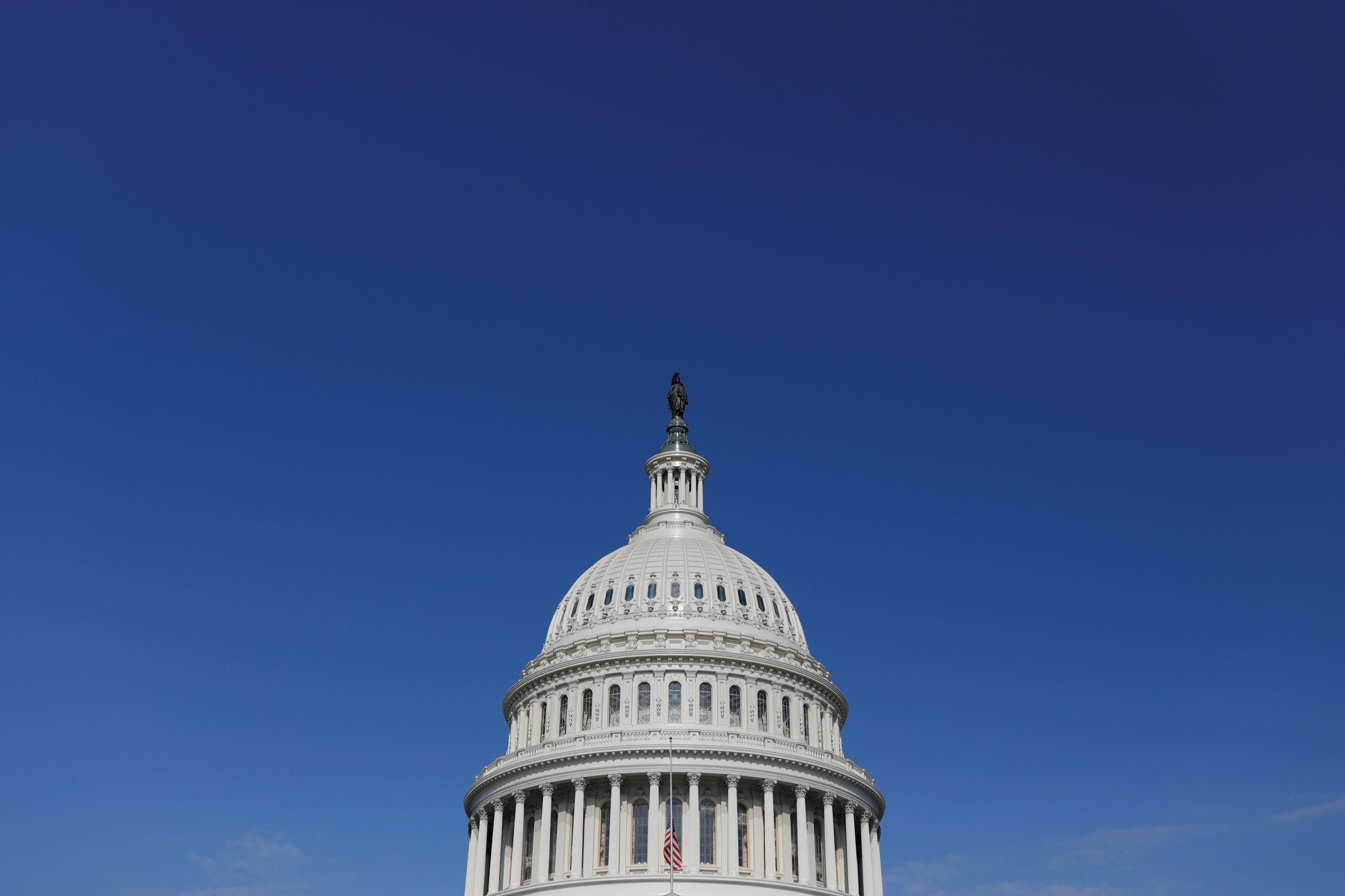U.S. House of Representatives Speaker Nancy Pelosi on Tuesday said Democrats were open to delaying an October recess to get a deal with Republicans on a new coronavirus aid bill, as a group of moderates unveiled a $1.5 trillion bipartisan plan they hoped would break a deadlock.
With the U.S. presidential and congressional elections less than two months away, Republicans and Democrats have been unable to agree on a fifth coronavirus bill, having approved more than $3 trillion worth of measures earlier this year.
“We are committed to staying here until we have an agreement,” Pelosi, a Democrat, said in a CNBC interview, adding that there were disagreements with Republicans on how to “crush the virus” that has now killed more than 194,000 people in the United States.
The House was scheduled to recess no later than Oct. 2 so members can go home to campaign for re-election on Nov. 3. But House Majority Leader Steny Hoyer said lawmakers will be on standby, with 24 hours notice of any vote on a coronavirus aid bill if a deal is reached.
Congress is expected to focus in coming weeks on passing legislation funding the government beyond Sept. 30, the end of the current fiscal year.
Hoyer said that a stopgap money bill to avert government shutdowns would be put to a vote in that chamber next week.
Hoyer, a Democrat, said the Problem Solvers Caucus call for $1.5 trillion in new aid was helpful, but more was needed to confront a pandemic that has cost millions of U.S. jobs and shown few signs of abating.
Meanwhile, the Democratic heads of eight House committees said in a statement that the “proposal falls short of what is needed to save lives and boost the economy.”
The proposal drew praise from the U.S. Chamber of Commerce. Executive Vice President Neil Bradley called it “a reasonable middle ground,” but said expanded liability protections for businesses, something Democrats oppose, still had to be addressed.
But the No. 2 Senate Republican, John Thune, was not as upbeat, calling it “problematic” because of the amount of spending for state and local governments. The overall cost, he added, was around $500 billion too high for many Republicans.
‘CAN’T WAIT’
The Problem Solvers Caucus, including 25 Democrats and 25 Republicans, has been working to find common ground on coronavirus relief for the past six weeks.
“We can’t wait,” Representative Josh Gottheimer, the group’s Democratic co-chairman, told a news conference, saying the proposal was intended to get the two sides back to the table.
The gulf between Democrats in Congress and the White House is wide. In mid-May, the House approved a $3.4 trillion aid plan. But Senate Majority Leader Mitch McConnell responded by calling for a “pause” in any new funds.
By late July, he offered a $1 trillion bill that many of his fellow Republicans rejected, only to then put a $300 billion bill up for a vote that Democrats blocked as insufficient. Meanwhile, Pelosi had offered to drop her aid demand to $2.4 trillion and the White House signaled a willingness to accept $1.3 trillion.
Representative Tom Reed, the Problem Solvers’ Republican co-chairman, said Republican leaders and the White House were “positive” about the plan. “They want to get a deal,” he told reporters.
The new bipartisan House proposal includes another round of direct checks to Americans, $500 billion for state and local governments, and jobless benefits, with spending lasting through January’s presidential inauguration.
(Reporting by David Morgan, Susan Cornwell and Patricia Zengerle; additional reporting by Doina Chiacu, Lisa Lambert and Susan Heavey; Writing by Richard Cowan; Editing by Bernadette Baum, Steve Orlofsky and Jonathan Oatis)

























 Continue with Google
Continue with Google